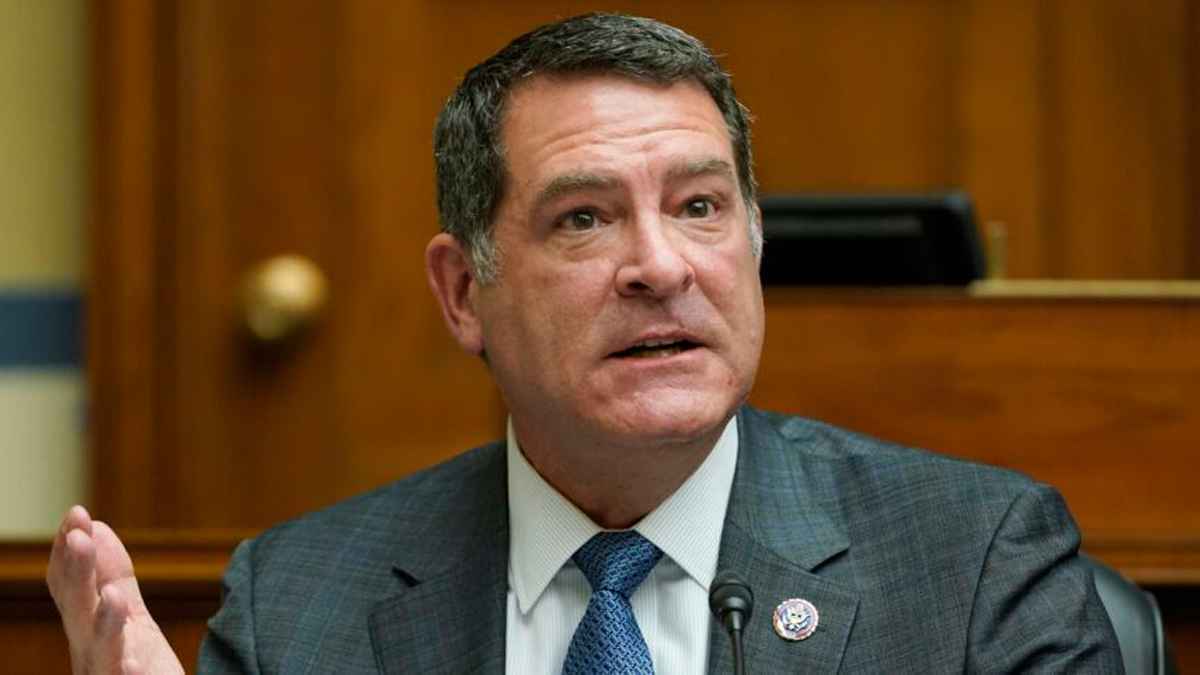
Defense Bill Measure Passed by House to Defund Studios Practicing CCP Censorship

The United States House of Representatives has passed the National Defense Authorization Act (NDAA) for Fiscal Year 2024, incorporating a amendment that seeks to prevent federal support to film studios that comply with censorship requests from the Chinese communist regime. Named the Stopping Communist Regimes from Engaging in Edits Now Act (SCREEN Act), this amendment stands as a resolute effort to protect artistic freedom and promote unhindered expression in the film industry.
The SCREEN Act, included as an amendment in the House version of the FY24 NDAA, is designed to curtail the influence of foreign governments on the content produced by American film studios.
The amendment, first introduced in February 2022 and reintroduced to the current Congress by Rep. Mark Green (R-Tenn.) in March, would prevent the federal government from assisting studios in Hollywood with the production of a film if that film is co-produced by a Chinese company.
Mr. Green, expressed his concerns to The Epoch Times about the Chinese Communist Party’s efforts to impose its censorship practices on Hollywood. According to him, the CCP aims to silence any voice that exposes its alleged illegal, inhumane, and malign activities. Mr. Green emphasized the significance of the SCREEN Act, which recently passed the House.
The SCREEN Act would also mandate film companies that receive production assistance from the Department of State to disclose to Congress any past films that have undergone significant editing by the Chinese Communist Party (CCP). Additionally, it would prohibit the federal government from providing assistance to any studios that have edited a film for the CCP regime.
The House version of the NDAA passed along party lines on July 14 but is unlikely to pass the Senate due to a number of Republican-introduced amendments that would bar payment for medical travel for soldiers seeking abortions.
SCREEN Act Targets CCP Censorship
The issue of CCP censorship and interference in U.S. media has become a contentious matter as relations between the regime and the United States deteriorate. This is particularly evident in the allocation of taxpayer dollars intended for defense, which are being utilized to support Hollywood productions by companies that frequently censor films for the CCP.
For many years, the Pentagon has maintained a mutually beneficial relationship with Hollywood studios. This arrangement allows movies to be filmed on military bases, planes, and ships in exchange for positive portrayals of soldiers, often resulting in increased recruitment. However, in recent years, the CCP regime has increasingly leveraged its massive film market to pressure Hollywood studios into censoring or altering movies to align with communist values. This disturbing trend poses a threat to free speech and compromises U.S. values and principles.
In response, the Pentagon revised a media production document in late June, stating that the Department of Defense would no longer collaborate with film studios that comply with or are likely to comply with demands from the Chinese government, the Chinese Communist Party, or any affiliated entities to censor content in a significant manner that advances China’s national interests. This information was shared in a document provided to The Epoch Times.
Mr. Green’s SCREEN Act goes a step further by prohibiting the federal government from funding any project by a studio that engages in censorship on behalf of the CCP. Additionally, the proposed act mandates that Hollywood studios provide written statements affirming their commitment to not censor their films at the request of the CCP before receiving assistance from the Department of State.
“I commend the Pentagon’s decision to deny government assistance to studios that censor American films at the CCP’s behest, but we can take further action,” stated Mr. Green. “I introduced the SCREEN Act to prevent Communist China from using our film industry as a platform for spreading its propaganda.”
Studios Should Cease ‘Bow Down’ to Communist Ideology
The SCREEN Act’s introduction comes after two recent instances where the CCP aimed to suppress American filmmakers’ expression.
The Chinese release of the children’s film “Minions: The Rise of Gru” from last year had a modified ending that supported the policies of the communist regime. While the global version of the film ends with two anti-heroes riding into the sunset after a heist, the Chinese version concludes with one character receiving a 20-year prison sentence while the other renounces his evil deeds. The latter then devotes himself to raising three children, seemingly referring to Chinese Communist Party (CCP) leader Xi Jinping’s three-child policy.
The first two films in the related series “Despicable Me” were completely banned in China.
Likewise, in 2022’s “Top Gun: Maverick,” a bomber jacket with Taiwanese and Japanese flag patches, as featured in the original 1986 film, was shown. However, in a trailer for the second installment, both flags were removed and replaced with fictional emblems, leading to speculation that this change aimed to appease Beijing.
Due to significant public backlash, the flags were reinstated in the final version of the movie, which was ultimately not cleared for release in China.
According to Mr. Green, the SCREEN Act will assist American media companies in making similar choices in the future, ensuring that U.S. taxpayer funds are never utilized to subsidize the CCP’s anti-American ideology.
Mr. Green stated, “This amendment will enact permanent changes to safeguard American taxpayers from funding film studios that bow down to the CCP.”
In line with the analysis provided by Epoch Times…












Comments